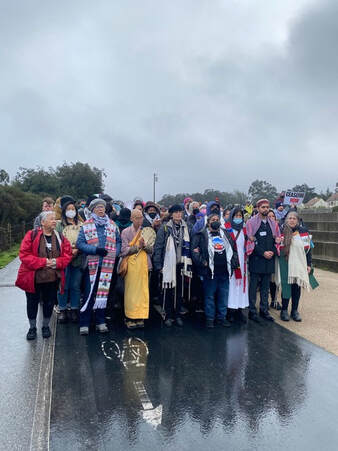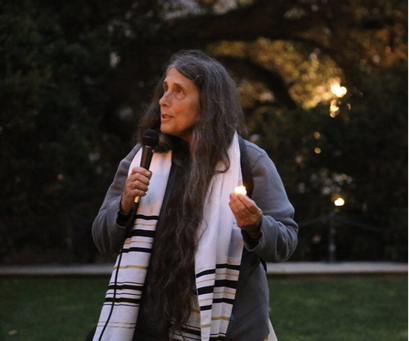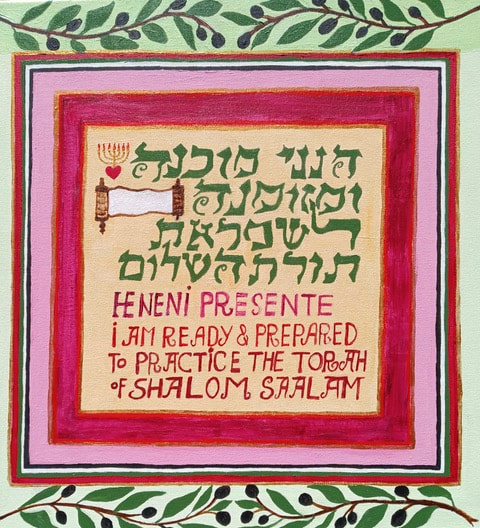Shomeret Shalom is a sevenfold nonviolent pathway which incorporates noncooperation with systemic violence and war as matters of religious observance.
A commitment to nonviolence distinguishes Shomeret Shalom from communities of practice which espouse love and the pursuit of social justice but believe that war and militarism are necessary evils in order to protect Jewish people from harm. A ‘Shomeret Shalom’ chooses to follow the sevenfold pathway of Jewish revolutionary nonviolence as the best method for keeping all of us safe and opening channels of Loving Presence in our lives.
A commitment to nonviolence distinguishes Shomeret Shalom from communities of practice which espouse love and the pursuit of social justice but believe that war and militarism are necessary evils in order to protect Jewish people from harm. A ‘Shomeret Shalom’ chooses to follow the sevenfold pathway of Jewish revolutionary nonviolence as the best method for keeping all of us safe and opening channels of Loving Presence in our lives.
Past Shomeret Shalom Classes
March 7, 14 Shomeret Shalom Class: Prep for Purim with Rabbi Lynn Gottlieb Thursday 4:30 - 5:30p PST
March 7, 14 Sliding Scale covers both sessions: $25 - $36
March 7: What shall we do with Haman? How do we tell the Purim tale without weaponizing it against others?
March 14: Womyn and Trans people on the front line.
An exploration of Esther the Protester and Vashti the Resister in the Palace of Patriarchy.
What lessons about activism can we draw from the story?
Register at paypal.me/RabbiLynn Include your email so I can send you a zoom link!
March 7, 14 Sliding Scale covers both sessions: $25 - $36
March 7: What shall we do with Haman? How do we tell the Purim tale without weaponizing it against others?
March 14: Womyn and Trans people on the front line.
An exploration of Esther the Protester and Vashti the Resister in the Palace of Patriarchy.
What lessons about activism can we draw from the story?
Register at paypal.me/RabbiLynn Include your email so I can send you a zoom link!



